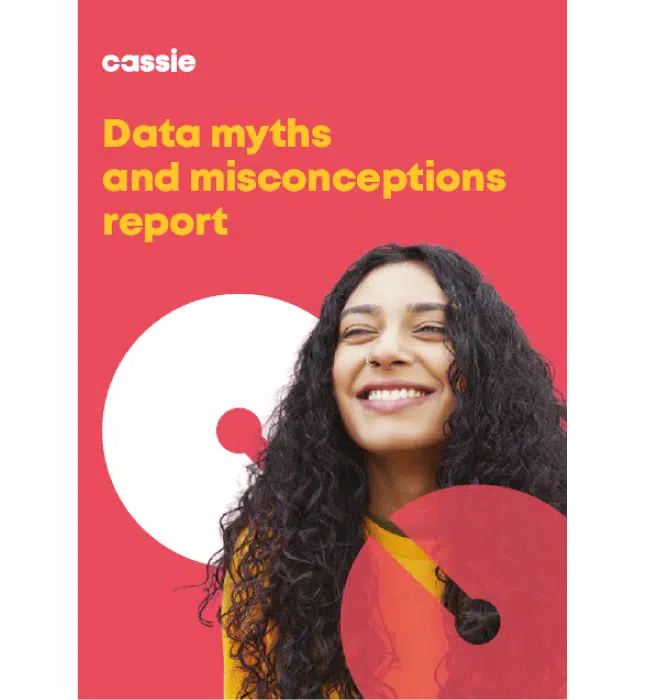Can trust be a corporate asset?
Posted: January 13, 2025
In 2011, the World Economic Forum declared personal data as a new asset class. In 2025, the System of National Accounts (SNA), a set of accounting standards that countries around the world use to align their economic forecasts and statistics, will include a new standard for how to account for digital data as an asset.
Given that the SNA includes instructions on how to estimate as well as what organizations can include as an asset, it will be interesting to see this new SNA development. Data and the worth of data are values that are illusive and challenging to define. For example, many jurisdictions talk about roles related to personal data, such as controller, processor, and data subject, but they do not provide for a concept of direct ownership of data. Rather, entities have the right to use (or the responsibility not to use) personal data based on their role and a defined legal basis, such as consent. Also, with personal data come significant risks, such as costly data breaches and regulatory compliance issues. This means that organizations may not be able to base valuations of personal data on ‘ownership,’ as is the case for most assets. Also, given the risks involved in handling personal information, organizations must also consider that risk as part of the valuation.
Some companies are already making a run at placing a value on personal data as an asset. For example, the business model of data-heavy giant Google focuses solely on personal data, so any valuation of Google must consider personal data as an asset. However, considering some of the more indirect measures of data value, such as the ability to make precise, accurate business decisions, is hard to target. As a result, some companies are relying on only the simplest measures – monetization. In fact, one researcher suggests that Google places value on the personal data it controls based on its ability to directly monetize it, such as through targeted advertising.
Though perhaps only one, easiest way to measure data’s value, the targeted advertising value a company receives from personal data is certainly significant. In the United States alone, one source estimates that the digital advertising market will reach US $740.3 billion in 2024, growing by 8.9%. So, while estimating data’s value based only on direct monetization may miss indirect, but critical, value factors, direct monetization numbers may be a good starting point.
However, in most jurisdictions, targeted advertising and other direct monetization uses of data require consent – opt in, or at least opt out. Since consumers have a choice for these uses and can at least say no, how those consumers feel about the company and how it intends to use the data has a tremendous impact on whether and how that company can monetize their data. In other words, consumer trust impacts the extent to which an organization can monetize their data, which directly impacts the value of that organization’s data asset. It follows that if data is an asset, then trust is also an asset, because it directly impacts the value of the data asset a company holds.
Companies are beginning to see the value of trust. According to Forbes, 57% of business leaders report a positive correlation between consumer trust and revenue increases. This correlation is not surprising. In addition to consumers saying no (or not saying yes) to data uses by a company they do not trust, companies that do not earn consumer trust may not get the personal information to begin with. Forbes also reports that 72% of Americans are reluctant to share personal information with businesses, and 73% of customers would spend significantly less with companies they do not trust.
As a result, it is easy to conclude that trust, along with data, is an asset. Though perhaps more intangible than the revenue a company makes from monetizing data, trust influences the amount of data a company obtains and the rights it has for activities that drive direct monetization – like data sales and targeted advertising. A trustworthy organization can build strong relationships with consumers, increase consumer confidence and loyalty, and attract consumers, retain consumers, and obtain rights to use their personal data.
Apart from the question of how to value trust as an asset, which may be challenging given the intangible nature of trust, the more important question to consider is how to treat trust as an asset. Fortunately, despite the ethereal nature of trust, there is quite a lot of research about trust, how to earn it, and how to keep it. Related to personal data and trust, here are a few tips for treating trust as an asset.
- Talk about the value of trust – Only an organization that sees the value of trust will come to view trust as an asset and act accordingly. This requires conversations across the organization about the research around the importance of trust, the impacts to the bottom line of trust done wrong, and the value of trust done right.
- Base customer interactions on transparency and consent – Consumers trust organizations that do what they say and say what they do. While hazy understanding and no control of data uses will erode trust, the reverse is true. Consumer experiences that result in clear understanding of practices and the opportunity to make informed decisions, based on clear benefits, lead to earned trust.
- Collect metrics – Marketing and customer experience teams have long done A-B testing to identify the experience that resonates best with consumers. They also link sales to marketing efforts and track return on investment. Consider testing transparency and consent experiences to identify which are clearer to consumers. Also identify metrics related to opt ins and opt outs, customer retention, sales, and data collection as tied to revenue to show how trust positively impacts the bottom line.
In summary, if personal data is an asset (and it is), the trust that allows an organization to collect and use personal data is also an asset. A company that treats trust as an asset by developing an internal culture that values trust, provides superior transparency and granular data subject control over data, and tracks how trust-enhancing measures impact the bottom line will see the benefits of that trust.

Download our ‘Data myths and misconceptions’ research report
Understand why US consumers show concerns about the security of their online personal data, with our Data Myths & Misconceptions report which covers:
- The most popular data protection measures and determine how effective they are in the eyes of consumers
- How aware consumers are in regard to the level of information that can be collected about them from organizations
- If US consumers are keeping up to date with current and upcoming data privacy legislations
- How your business can build customer trust and loyalty by respecting consumers’ privacy choices

